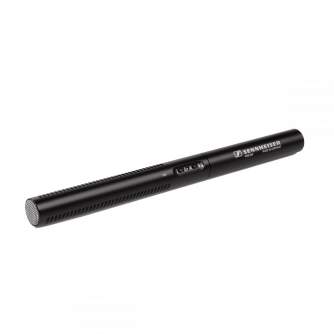Directional Microphone (Shotgun)
There are 5 products.Zoom SSH-6 Stereo Shotgun Microphone Capsule for H5, H6, Q8, F4, F8, U-44
€ 15945
Delivery 5 - 8 days
Showing 1 - 5 of 5 items

Directional microphones (shotgun microphones) are ideal for situations where it is necessary to record sound from a specific source in a noisy environment while reducing ambient noise. Their elongated design allows the microphone diaphragm to capture sound only from the narrowly focused point it is aimed at, rather than from other directions.
...
Directional microphones (shotgun microphones) are ideal for situations where it is necessary to record sound from a specific source in a noisy environment while reducing ambient noise. Their elongated design allows the microphone diaphragm to capture sound only from the narrowly focused point it is aimed at, rather than from other directions.
Characteristics and features:
- Directional microphones have an elongated shape with openings on both sides. Sound passes through the tube until it reaches the receiving device, while side sounds are reduced by penetrating through the side openings.
- Built-in camera microphones often also record the sounds of the camera itself, which interferes with sound quality.
- Directional microphones are used in situations where the sound source is known and relatively stationary, such as when shooting interviews, lectures, or video blogs where the speaker is in front of the camera.
Application:
- This type of microphone is used when filming various scenes, where they are placed above the speakers so that the microphone is out of the frame and out of sight (using a boom pole).
- Windscreens are used for outdoor shooting and in windy conditions.
- When attaching the microphone to the camera (usually via a hot shoe), it is recommended to use a shock mount, which reduces noise from handling or moving the camera.
Recommendations:
- For best results, the microphone should be placed as close to the speaker as possible. If the camera is closed, the microphone can be attached to the camera. If the camera is far away, consider using a boom pole so the microphone is closer to the sound source but remains out of frame.
 Google
Google




